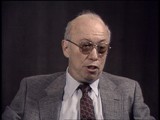You searched for: FACEBOOK代全世界推广开户【TG飞机:@bapingseo】谷歌seo网站推荐【TG电报:@bapingseo】尼日利亚做广告【Telegram:@bapingseo】128棋牌下载hi合乐888手机?20220707j5C1Wb.html
<< Previous | Displaying results 71-80 of 1613 for "FACEBOOK代全世界推广开户【TG飞机:@bapingseo】谷歌seo网站推荐【TG电报:@bapingseo】尼日利亚做广告【Telegram:@bapingseo】128棋牌下载hi合乐888手机?20220707j5C1Wb.html" | Next >>
-
Edward Adler describes arrest and imprisonment in prewar Germany for his relationship with a non-Jewish woman
Oral HistoryEdward was born to a Jewish family in Hamburg. In 1935, the Nuremberg Laws prohibited marriage or sexual relations between German non-Jews and Jews. Edward was then in his mid-twenties. Edward was arrested for dating a non-Jewish woman. Classified as a habitual offender, he was later deported to the Sachsenhausen concentration camp, near Berlin. He was forced to perform hard labor in construction projects. Edward had married shortly before his imprisonment, and his wife made arrangements for their…
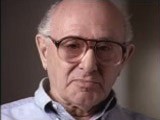
-
Robert Wagemann describes fleeing from a clinic where, his mother feared, he was to be put to death by euthanasia
Oral HistoryRobert and his family were Jehovah's Witnesses. The Nazis regarded Jehovah's Witnesses as enemies of the state for their refusal to take an oath of loyalty to Adolf Hitler, or to serve in the German army. Robert's family continued its religious activities despite Nazi persecution. Shortly before Robert's birth, his mother was imprisoned briefly for distributing religious materials. Robert's hip was injured during delivery, leaving him with a disability. When Robert was five years, he was ordered to report…
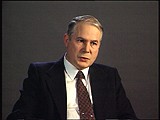
-
David Levine describes hiding his two-year-old nephew during a roundup of children in the Kovno ghetto
Oral HistoryDavid was born to a middle class Jewish family and attended a Jewish school. In August 1941, after the Germans occupied Kovno, he was forced into the Kovno ghetto, where he shared two rooms with his immediate and extended family. Many members of his extended family were killed during the Great Aktion in Kovno in October 1941. David worked in a forced-labor brigade in the ghetto. In March 1944, he witnessed the Kinder Aktion and was able to save his nephew. During the destruction of the Kovno ghetto, David…
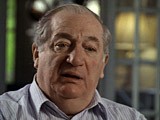
-
Abraham Lewent describes hiding during a raid in which his mother and sisters were seized for deportation from Warsaw to Treblinka
Oral HistoryLike other Jews, the Lewents were confined to the Warsaw ghetto. In 1942, as Abraham hid in a crawl space, the Germans seized his mother and sisters in a raid. They perished. He was deployed for forced labor nearby, but escaped to return to his father in the ghetto. In 1943, the two were deported to Majdanek, where Abraham's father died. Abraham later was sent to Skarzysko, Buchenwald, Schlieben, Bisingen, and Dachau. US troops liberated Abraham as the Germans evacuated prisoners.
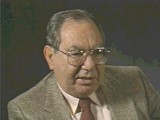
-
Wilek (William) Loew describes the hiding place in which his mother survived an Aktion in Lvov
Oral HistoryWilek was the son of Jewish parents living in the southeastern Polish town of Lvov. His family owned and operated a winery that had been in family hands since 1870. Wilek's father died of a heart attack in 1929. Wilek entered secondary school in 1939. Soon after he began school, World War II began with the German invasion of Poland. Lvov was in the part of eastern Poland annexed by the Soviet Union. Although the Soviets took over Wilek's home and the family business, Wilek was able to continue his…
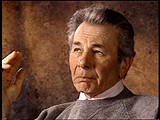
-
Sophie Turner-Zaretsky describes how her teddy bear was given his name
Oral HistorySophie was born Selma Schwarzwald to parents Daniel and Laura in the industrial city of Lvov, two years before Germany invaded Poland. Daniel was a successful businessman who exported timber and Laura had studied economics. The Germans occupied Lvov in 1941. After her father's disappearance on her fifth birthday in 1941, Sophie and her mother procured false names and papers and moved to a small town called Busko-Zdroj. They became practicing Catholics to hide their identities. Sophie gradually forgot that…
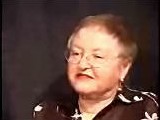
-
Leon Bass describes his knowledge of Nazi camps during and after World War II
Oral HistoryLeon Bass was born in Philadelphia, PA in 1925. He joined the US Army in 1943 and served as a member of the all-Black 183rd Engineer Combat Battalion attached to General Patton's Third Army. Leon's unit was involved in the Battle of the Bulge as well as the liberation of Buchenwald. After the war, Leon went on to receive his doctorate, teach, and speak about the Holocaust and racism. In this interview, Leon describes what he knew about Nazi concentration camps and the Holocaust during and after…
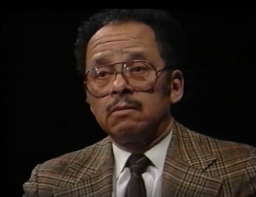
-
Leo Bretholz describes his escape from a train during deportation from the Drancy camp
Oral HistoryAfter the Germans annexed Austria in 1938, Leo attempted to flee. He eventually reached Belgium. In 1940 he was deported to the St.-Cyprien camp in France but escaped. In 1942 Leo was smuggled into Switzerland but was arrested and sent back to France, this time to the Rivesaltes and Drancy camps. He and a friend escaped from a train deporting them to Auschwitz in Poland. Leo joined the French underground in 1943. He arrived in the United States in 1947.
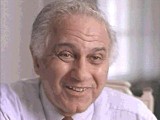
-
Martin Strauss describes German soldiers searching his family at the German border with Italy
Oral HistoryIn 1938, Martin's father was imprisoned during Kristallnacht (the "Night of Broken Glass"). Upon the intervention of the family's chauffeur, a gentile, Martin's father was released after three days. The family obtained visas to immigrate to Palestine and left Germany in 1939. Martin aided "illegal" immigrants who defied British restrictions on immigration into Palestine. He was imprisoned by the British in 1947 and forbidden to live in Palestine. He then came to the United States.
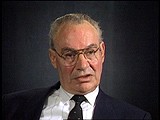
-
Ivo Herzer describes assistance from Italian soldiers during his family's escape from Croatia
Oral HistoryIvo grew up in a middle-class Jewish family in Zagreb. He experienced little overt antisemitism until the Germans and their allies invaded Yugoslavia in April 1941 and installed a fascist Ustasa government in Croatia. The Ustasa regime began killing Jews, Serbs, and Roma (Gypsies). Ivo's family escaped to Italian-occupied territory, where the Italians tried to protect Jewish refugees. Ivo lived in Italian internment camps, including the Rab island camp, before moving to mainland Italy in 1944. He worked…
